Black ash, beetles and beavers
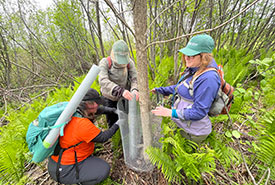
Kayla, Olivia and Jen caging a black ash tree (Photo by Julia Ball/NCC)
By Julia Ball, Kayla Fisher and Olivia Lymburner Three of us, Julia Ball, Kayla Fisher and Olivia Lymburner, had the pleasure of being conservation interns with the Nature Conservancy of Canada (NCC) in Newfoundland and Labrador during the summer...
Wetlands are our natural defences and need to be conserved
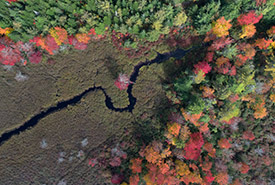
Upper Ohio, NS (Photo by Mike Dembeck)
During the recent UN Biodiversity Conference (COP15) in Montreal, over 190 nations adopted a Global Biodiversity Framework. Part of that agreement is to conserve at least 30 per cent of the world’s lands and waters by 2030. While it is not a...
Recognition and Reconciliation: The pathway forward is Indigenous-led conservation
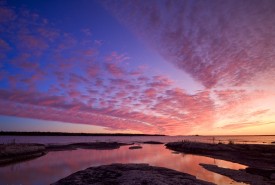
Sunset at Hay Bay, Ontario (Photo by Ethan Meleg)
Friday, September 30 is National Day for Truth and Reconciliation. This day is intended to provide an opportunity for people to recognize and commemorate the legacy of residential schools. This day has also been observed as Orange Shirt Day since...
One tree at a time: Canada’s forests
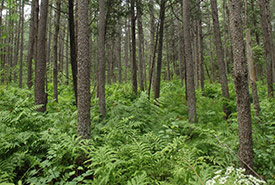
Tamarack forest (Photo by NCC)
What one habitat type runs through every province and territory, surrounds communities where most Canadians live and covers about 40 per cent of the country? If you guessed forests, you'd be right! We’re lucky to live in a country dominated...
A case of mistaken identity: Goldenrod and ragweed
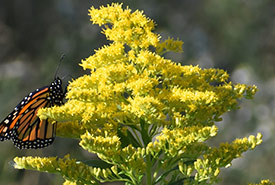
Monarch butterfly on Canada goldenrod (Photo by Peter Jessen, CC BY-NC 4.0)
I count myself fortunate when the change of seasons doesn’t bring about a runny nose, itchy eyes, headache and coughing, among other symptoms brought about by pollen (a fine powder produced by plants for sexual reproduction). Some pollen is...
Something’s Fishy: On the down low
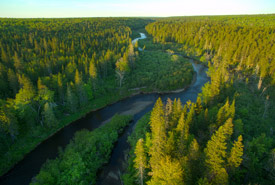
Aerial view of Foxner Nature Reserve, NB (Photo by Mike Dembeck)
Many freshwater fish are extremely susceptible to changes in the waters they live in. Pollution and sediments can all impact the health of lakes, rivers and streams. But did you know that temperature can impact the amount of oxygen in the...
Canada's splendid sparrow crew
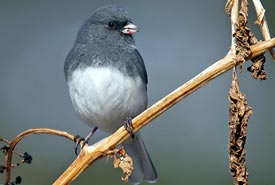
Dark-eyed junco (Photo by Bill Hubick)
Sparrows often don’t get enough credit. Many don’t have flashy plumage like jays, orioles or cardinals, or melodic songs like thrushes or meadowlarks; however, sparrow species are often fairly distinct (once you get to know them) and...
Stopping habitat loss is the key to saving Canada’s endangered species
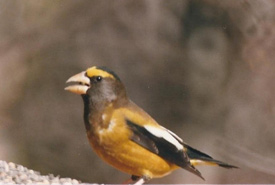
Evening grosbeak (Photo by Anna Tchoulik)
Canada has been losing and saving species for a long time. Since European settlement, over 100 species have been lost here. These include plants and animals that are extinct and extirpated and species that are considered historic (no one has seen...
Twelve spooky facts about Canadian bats
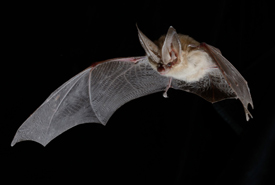
Townsend's big-eared bat (Photo by Brock Fenton)
There are 18 known bat species in Canada. Although they are subjected to a spooky stigma around Halloween, they’re nothing to be afraid of. Here are 12 things you didn’t know about these not-so-scary mammals: 1. The snooze...
Coasting along Canada’s habitats
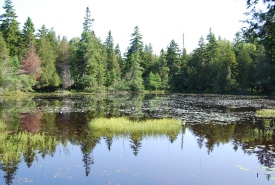
Musquash Estuary, NB (Photo by NCC)
Canada is a nation bordered by three oceans: Pacific, Arctic and Atlantic. In many ways, the habitats, local culture and economies are shaped by them. Often when those of us who don’t live near the shoreline think of oceans, we picture a...

